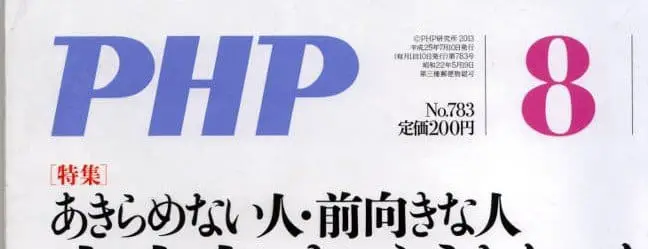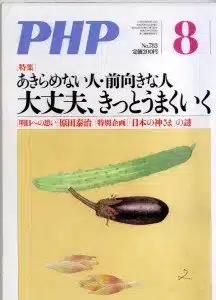Go offline with the Player FM app!
JLPT BC 120 | Building up Reading
Archived series ("Inactive feed" status)
When?
This feed was archived on December 10, 2023 20:08 (
Why? Inactive feed status. Our servers were unable to retrieve a valid podcast feed for a sustained period.
What now? You might be able to find a more up-to-date version using the search function. This series will no longer be checked for updates. If you believe this to be in error, please check if the publisher's feed link below is valid and contact support to request the feed be restored or if you have any other concerns about this.
Manage episode 246976784 series 28177
Last month, I said I was going to start reading Kazoku Geemu, but I got sidetracked for technical reasons. Apparently, you need a kindle device, or kindle for Android to read the eBook version (Kindle of iOS doesn’t work). I don’t happen to have either a Kindle device or Kindle for Android at the moment so I guess I am out of luck. I’m not sure if this is a licensing thing or what.
Instead, I went to the bookstore and picked up the latest issue of PHP magazine. No, it’s not a magazine about web programming which is what I thought it was at first. PHP actually stands for ‘Peace and Happiness through Prosperity’. It sounds a little suspicious in a cult kind of way, but it is actually a pretty good collection of essays about life lessons from various semi-famous people in Japan.
Essays for the JLPT are sometimes taken from these magazines or one of the books they have published. And if you read a few of the essays they tend to give off the same feeling as ones you would see on the test. They tend to tell a story and then go on to talk about what was learned from that.
The company was actually founded by Konosuke Matsushita. And if that name sounds familiar, it’s because he founded Matsushita Electric Industrial Company, which is now commonly referred to as Panasonic, or the ‘National’ brand inside Japan. He is generally regarded as one of the biggest entrepreneurs in Japan.
I had read an issue of it about a year ago, and I can see a noticeable difference in speed and comprehension. I was really happy to see that. However, the topics do start to get a little boring after awhile, so I might try a different magazine the next time I’m at the bookstore.
Japanese to Japanese Dictionary
I’m pretty embarrassed to say this, but I’ve finally made the move to a Japanese to Japanese dictionary. It has been a long time coming, of course. I probably should have switched at about the N3/N2 level, but I had established a (bad?) habit of using Kotoba (now, weirdly renamed imi wa?) on my iPhone because of all its handy features. Also, at the time I couldn’t find a good Japanese to Japanese dictionary that didn’t cost a lot for the iPhone.
The main reason why I made the switch is because I started running into words that had the same or similar definitions in English and I really needed a clearer definition of the words I was learning. Also, a lot of Japanese to Japanese dictionaries have collocations to give you an idea of how it is used. And of course, you get double practice, both the definition and the word are in Japanese.
I was able to find a free JPN to JPN dictionary for iPhones called Kotobank. It does the job fairly well. It’s not very verbose, and words aren’t cross-linked (click to go to a definition of a word) which premium dictionaries like Daijisen have, but overall it does well for being free.
Unfortunately, it is only available in the Japanese iTunes store, which means you’ll need a Japanese account. That requires a Japanese credit card, Japanese Paypal account, or a Japanese iTunes card. If you are outside of Japan and don’t have one of those, I’m sure Google will tell where (and how) to get one though.
Going on a SRS Diet
Lately, I’ve been trying my best to cut down on my review time. Mostly because I’d like to do other things with my study time, and keeping up a huge stack of cards at my level tends to get a little boring and not as useful as doing more reading.
And, like I’ve said a few times before, I want to build more courses. I’ve already created improved N5 and N4 courses that test kanji readings differently, and I’m currently working on a katakana course to compliment the very popular beginner/hiragana course I already have built up. I’m really looking forward to getting them out.
What are you up to?
Do you have any suggestions for a good Japanese to Japanese dictionary (that doesn’t require an internet connection)? How early did you start using a Japanese to Japanese dictionary?
79 episodes
JLPT BC 120 | Building up Reading
JLPT Boot Camp – The Ultimate Study Guide to passing the Japanese Language Proficiency Test
Archived series ("Inactive feed" status)
When?
This feed was archived on December 10, 2023 20:08 (
Why? Inactive feed status. Our servers were unable to retrieve a valid podcast feed for a sustained period.
What now? You might be able to find a more up-to-date version using the search function. This series will no longer be checked for updates. If you believe this to be in error, please check if the publisher's feed link below is valid and contact support to request the feed be restored or if you have any other concerns about this.
Manage episode 246976784 series 28177
Last month, I said I was going to start reading Kazoku Geemu, but I got sidetracked for technical reasons. Apparently, you need a kindle device, or kindle for Android to read the eBook version (Kindle of iOS doesn’t work). I don’t happen to have either a Kindle device or Kindle for Android at the moment so I guess I am out of luck. I’m not sure if this is a licensing thing or what.
Instead, I went to the bookstore and picked up the latest issue of PHP magazine. No, it’s not a magazine about web programming which is what I thought it was at first. PHP actually stands for ‘Peace and Happiness through Prosperity’. It sounds a little suspicious in a cult kind of way, but it is actually a pretty good collection of essays about life lessons from various semi-famous people in Japan.
Essays for the JLPT are sometimes taken from these magazines or one of the books they have published. And if you read a few of the essays they tend to give off the same feeling as ones you would see on the test. They tend to tell a story and then go on to talk about what was learned from that.
The company was actually founded by Konosuke Matsushita. And if that name sounds familiar, it’s because he founded Matsushita Electric Industrial Company, which is now commonly referred to as Panasonic, or the ‘National’ brand inside Japan. He is generally regarded as one of the biggest entrepreneurs in Japan.
I had read an issue of it about a year ago, and I can see a noticeable difference in speed and comprehension. I was really happy to see that. However, the topics do start to get a little boring after awhile, so I might try a different magazine the next time I’m at the bookstore.
Japanese to Japanese Dictionary
I’m pretty embarrassed to say this, but I’ve finally made the move to a Japanese to Japanese dictionary. It has been a long time coming, of course. I probably should have switched at about the N3/N2 level, but I had established a (bad?) habit of using Kotoba (now, weirdly renamed imi wa?) on my iPhone because of all its handy features. Also, at the time I couldn’t find a good Japanese to Japanese dictionary that didn’t cost a lot for the iPhone.
The main reason why I made the switch is because I started running into words that had the same or similar definitions in English and I really needed a clearer definition of the words I was learning. Also, a lot of Japanese to Japanese dictionaries have collocations to give you an idea of how it is used. And of course, you get double practice, both the definition and the word are in Japanese.
I was able to find a free JPN to JPN dictionary for iPhones called Kotobank. It does the job fairly well. It’s not very verbose, and words aren’t cross-linked (click to go to a definition of a word) which premium dictionaries like Daijisen have, but overall it does well for being free.
Unfortunately, it is only available in the Japanese iTunes store, which means you’ll need a Japanese account. That requires a Japanese credit card, Japanese Paypal account, or a Japanese iTunes card. If you are outside of Japan and don’t have one of those, I’m sure Google will tell where (and how) to get one though.
Going on a SRS Diet
Lately, I’ve been trying my best to cut down on my review time. Mostly because I’d like to do other things with my study time, and keeping up a huge stack of cards at my level tends to get a little boring and not as useful as doing more reading.
And, like I’ve said a few times before, I want to build more courses. I’ve already created improved N5 and N4 courses that test kanji readings differently, and I’m currently working on a katakana course to compliment the very popular beginner/hiragana course I already have built up. I’m really looking forward to getting them out.
What are you up to?
Do you have any suggestions for a good Japanese to Japanese dictionary (that doesn’t require an internet connection)? How early did you start using a Japanese to Japanese dictionary?
79 episodes
All episodes
×Welcome to Player FM!
Player FM is scanning the web for high-quality podcasts for you to enjoy right now. It's the best podcast app and works on Android, iPhone, and the web. Signup to sync subscriptions across devices.






